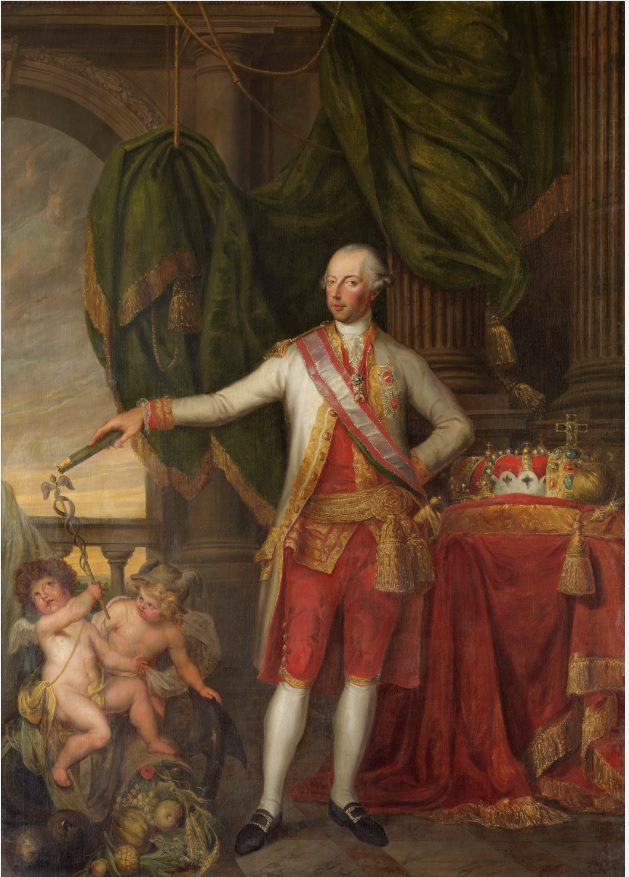Portrait of the Emperor Joseph II Painter: Gertrude Cornélie Marie de Pélichy, second half of the 18th century
Must Know
Emperor of the Holy Roman Empire from the death of his father in 1765 until his own death in 1790. Joseph supported the principle of enlightened absolutism (the state’s welfare is paramount, the ruler is meant to serve his people, and people should not be denied their rights because of their religious beliefs. These kings served and protected the people and claimed that the rights of the inhabitants were equal). However, his commitment to liberal reform created opposition that hindered its implementation. The extensive legislation he initiated in domestic policy, including the abolition of serfdom and the strengthening of the German-speaking central government at the expense of the autonomy of the various principalities, caused uprisings and destabilized the central government. Shortly after Joseph II’s death, many of the reforms he initiated were repealed. Among the social changes he initiated was the Edict of Tolerance in 1781, which granted religious freedom to non-Catholic Christians, meaning Protestants and Orthodox Christians, within the territory of the Holy Roman Empire. Additionally, the law granted Jews the right to engage in all commercial activities and the right to study in gymnasiums, and it is considered by some to be the first bill of rights given to Jews in the spirit of the principles of the Enlightenment and emancipation.

